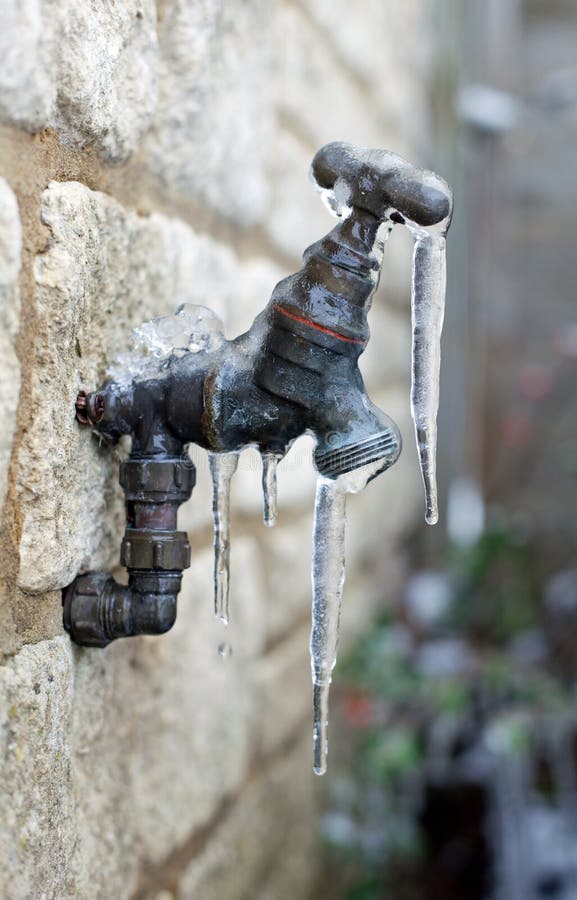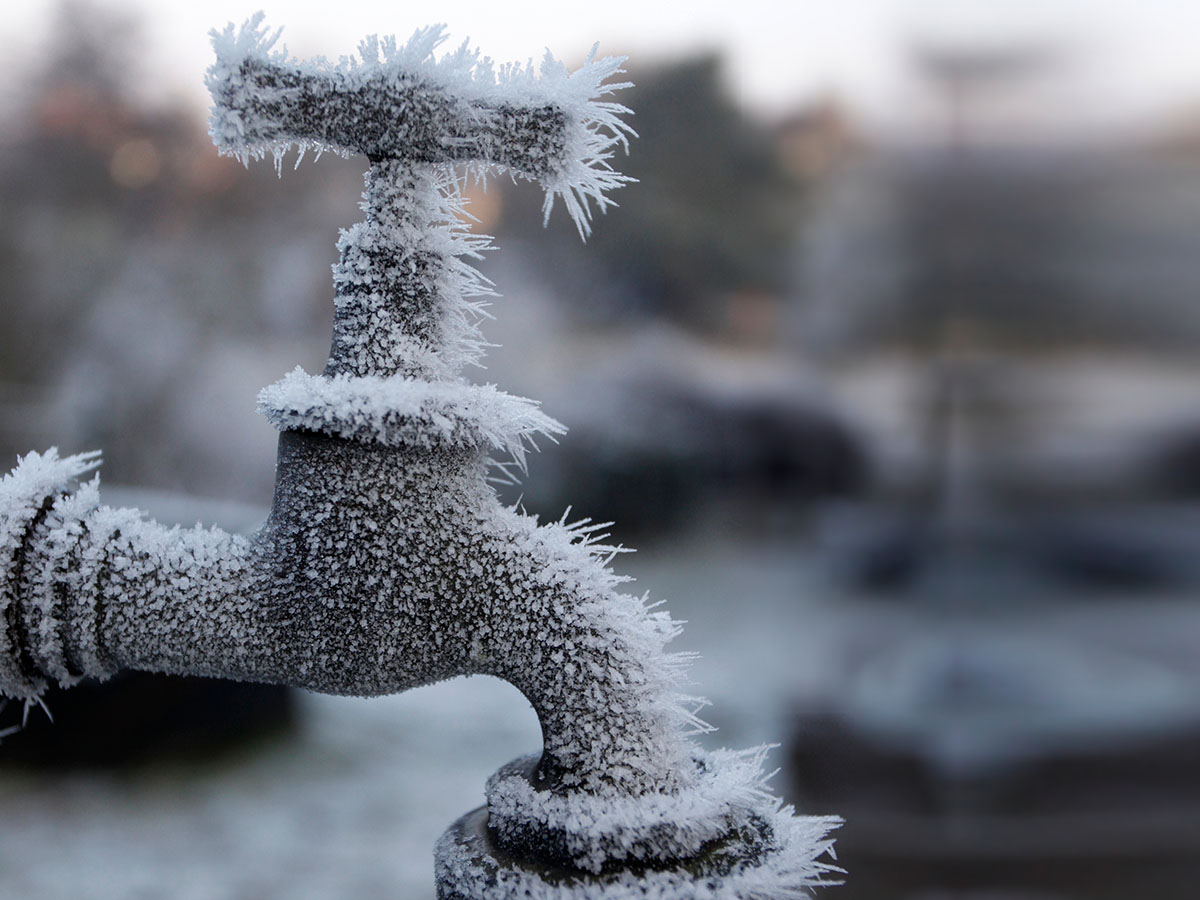Ways to Maintain Your Pipes from Freezing Damage: Crucial Advice
Ways to Maintain Your Pipes from Freezing Damage: Crucial Advice
Blog Article
Were you looking for help on How To Avoid Freezing Pipes?

Winter can damage your plumbing, particularly by freezing pipelines. Below's exactly how to prevent it from occurring and what to do if it does.
Introduction
As temperatures decrease, the risk of icy pipes increases, potentially resulting in pricey repair work and water damages. Recognizing how to stop icy pipelines is vital for homeowners in cold environments.
Avoidance Tips
Insulating vulnerable pipelines
Cover pipes in insulation sleeves or make use of warm tape to protect them from freezing temperature levels. Concentrate on pipes in unheated or external areas of the home.
Home heating methods
Keep indoor spaces adequately heated up, especially locations with pipes. Open cupboard doors to allow warm air to flow around pipes under sinks.
Exactly how to recognize frozen pipes
Seek decreased water flow from taps, uncommon odors or sounds from pipes, and visible frost on revealed pipelines.
Long-Term Solutions
Structural modifications
Take into consideration rerouting pipelines away from exterior walls or unheated areas. Add extra insulation to attics, basements, and crawl spaces.
Upgrading insulation
Purchase top notch insulation for pipelines, attic rooms, and walls. Proper insulation helps maintain consistent temperature levels and lowers the threat of frozen pipelines.
Shielding Exterior Pipes
Garden hose pipes and outdoor faucets
Detach and drain pipes yard pipes before winter season. Set up frost-proof spigots or cover exterior faucets with protected caps.
Understanding Icy Pipes
What creates pipes to ice up?
Pipes ice up when exposed to temperature levels below 32 ° F (0 ° C) for expanded periods. As water inside the pipes ices up, it expands, putting pressure on the pipeline walls and potentially triggering them to break.
Risks and problems
Icy pipelines can result in water disruptions, building damage, and expensive repair work. Burst pipes can flood homes and trigger substantial architectural damages.
Indications of Frozen Water Lines
Recognizing icy pipelines early can avoid them from rupturing.
What to Do If Your Pipelines Freeze
Immediate actions to take
If you suspect frozen pipes, maintain faucets open to eliminate stress as the ice thaws. Utilize a hairdryer or towels soaked in hot water to thaw pipelines slowly.
Final thought
Protecting against frozen pipelines requires proactive actions and quick actions. By understanding the causes, indications, and preventive measures, house owners can shield their pipes during cold weather.
Helpful Tips to Prevent Frozen Pipes this Winter
UNDERSTANDING THE BASICS: WHY PIPES FREEZE AND WHY IT’S A PROBLEM
Water freezing inside pipes is common during the winter months, but understanding why pipes freeze, and the potential problems it can cause is crucial in preventing such incidents. This section will delve into the basics of why pipes freeze and the associated problems that may arise.
THE SCIENCE BEHIND FROZEN PIPES
When water reaches freezing temperatures, it undergoes a physical transformation and solidifies into ice. This expansion of water as it freezes is the primary reason pipes can burst. As the water inside the pipe freezes, it expands, creating immense pressure on the walls. If the pressure becomes too great, the pipe can crack or rupture, leading to leaks and water damage.
FACTORS THAT CONTRIBUTE TO PIPE FREEZING
Low Temperatures: Extremely cold weather, especially below freezing, increases the risk of pipes freezing. Uninsulated or Poorly Insulated Pipes: Pipes located in unheated areas, such as basements, crawl spaces, or attics, are more prone to freezing. Insufficient insulation or lack of insulation altogether exacerbates the problem. Exterior Wall Exposure: Pipes running along exterior walls are susceptible to freezing as they encounter colder temperatures outside. Lack of Heating or Temperature Regulation: Inadequate heating or inconsistent temperature control in your home can contribute to frozen pipes. PROBLEMS CAUSED BY FROZEN PIPES
- Pipe Bursting: As mentioned earlier, the expansion of water as it freezes can cause pipes to burst, resulting in significant water damage.
- Water Damage: When pipes burst, it can lead to flooding and water damage to your property, including walls, ceilings, flooring, and personal belongings.
- Structural Damage: Prolonged exposure to water from burst pipes can compromise the structural integrity of your home, leading to costly repairs.
- Mold and Mildew Growth: Excess moisture from water damage can create a favorable environment for mold and mildew growth, posing health risks to occupants.
- Disrupted Water Supply: Frozen pipes can also result in a complete or partial loss of water supply until the issue is resolved.
WHY CERTAIN PIPES ARE MORE PRONE TO FREEZING
- Location: Pipes located in unheated or poorly insulated areas, such as basements, crawl spaces, attics, or exterior walls, are at higher risk of freezing.
- Exterior Pipes: Outdoor pipes, such as those used for irrigation or exposed plumbing, are particularly vulnerable to freezing as they are directly exposed to the elements.
- Supply Lines: Pipes that carry water from the main water supply into your home, including the main water line, are critical to protect as freezing in these lines can affect your entire plumbing system.
- Underground Pipes: Pipes buried underground, such as those connected to sprinkler systems or outdoor faucets, can be susceptible to freezing if not properly insulated.
https://busybusy.com/blog/helpful-tips-to-prevent-frozen-pipes-this-winter/

I was made aware of that editorial about How To Avoid Freezing Pipes through a good friend on another blog. Those who liked our blog entry plz remember to pass it around. Thanks a lot for being here. Come back soon.
Call Today Report this page